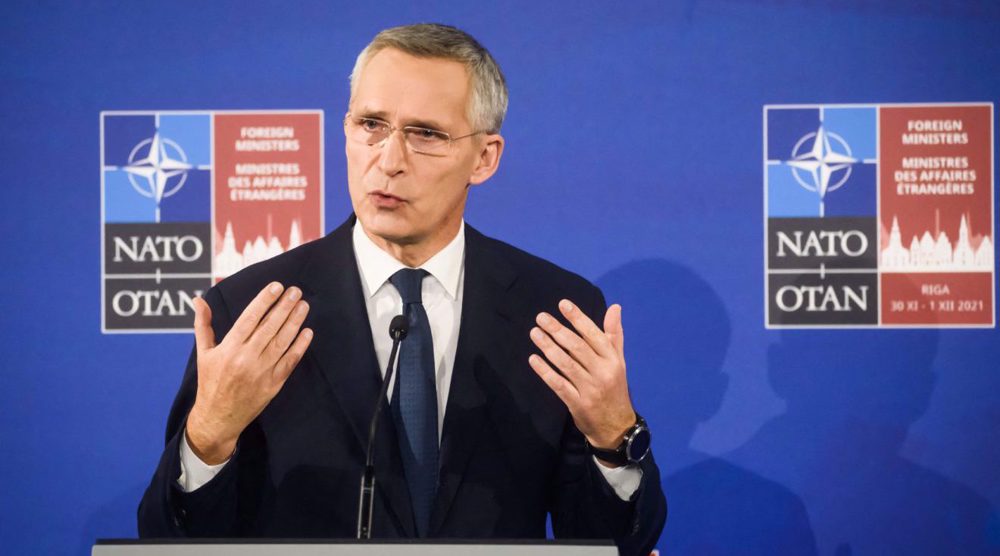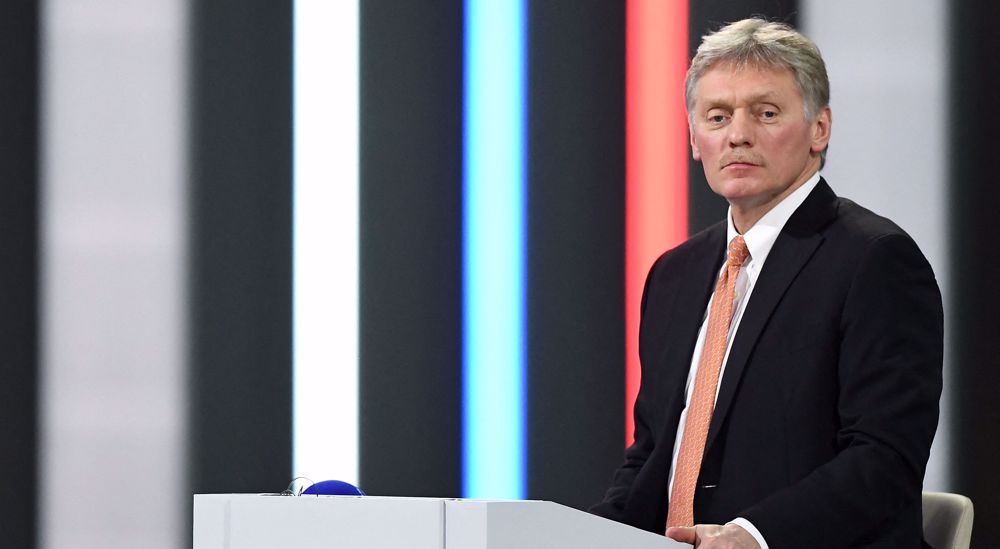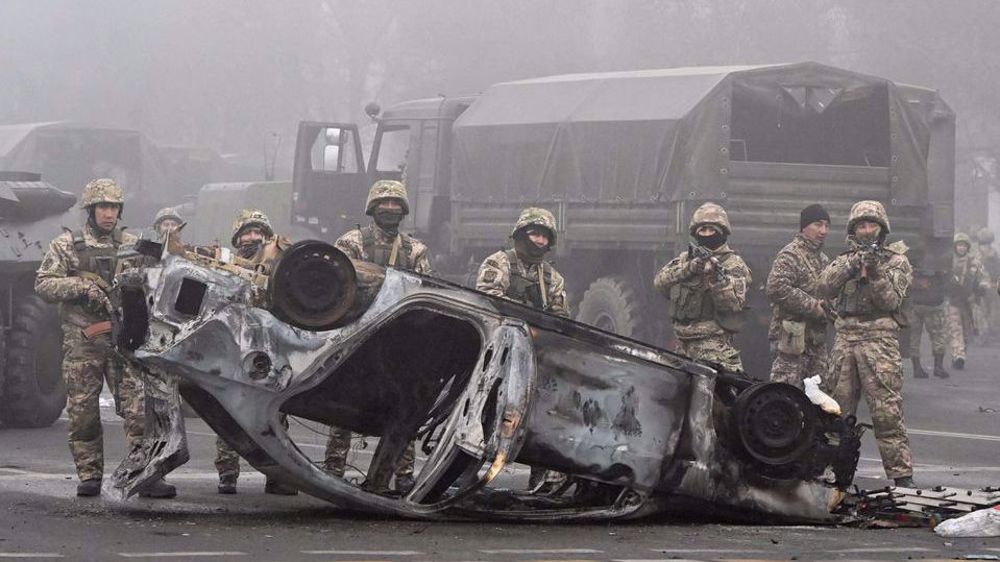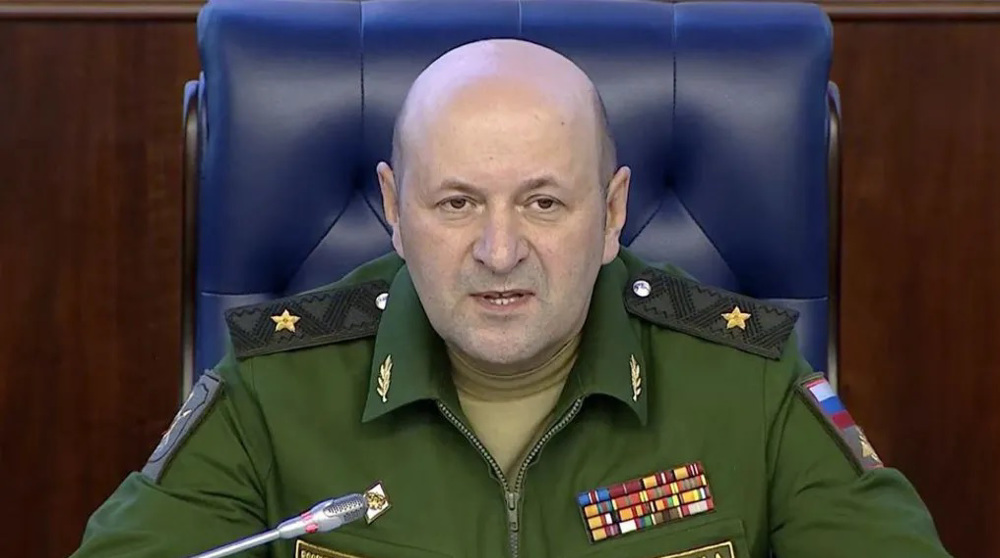Russia: Talks on Ukraine at ‘dead end’, US sanctions on Putin mean severing relations
Russia says talks with the West over the situation around Ukraine have hit a “dead end,” and that there is no reason to hold a new round of negotiations over security guarantees demanded by Moscow regarding NATO’s eastward expansion and Kiev’s membership in the US-led military alliance.
Russian Deputy Foreign Minister Sergei Ryabkov was quoted by TASS news agency as saying on Thursday that this week’s rounds of talks with the United States in Geneva and with NATO in Brussels had shown there was a "dead end or difference of approaches," and he saw no reason to sit down again in the coming days to restart the same discussions.
Ryabkov said the United States and its NATO allies were "not ready to meet our key requirements," and only intended to discuss issues of secondary importance to Moscow.
He also said Russian military specialists were providing options to President Vladimir Putin in case the situation around Ukraine worsened, but diplomacy must be given a chance.
The Russian diplomat also accused the Western side of lacking flexibility, and refused to rule out the possibility of Russian troop deployments to Venezuela and Cuba.
Ryabkov and his American counterpart, Wendy Sherman, held on Monday more than seven hours of negotiations, which focused on a wide-ranging new security arrangement that Moscow is seeking with the West over NATO’s eastward expansion and Ukraine’s potential membership in the US-led military alliance.
In press briefings after the talks, the two diplomats spoke of substantial differences. Ryabkov said Russia and the US had “opposite views on what needs to be done,” and Sherman said the Russian proposals had been “simply non-starters to the United States.”
'Necessary measures to be taken if constructive response not heard'
Talks are also underway between Moscow and the Organization for Security and Cooperation in Europe (OSCE) in Vienna, with Russia threatening unspecified consequences if no progress was made in the negotiations on Thursday.
"If we don't hear constructive response to our proposals within reasonable timeframe and aggressive behavior towards Russia continues, we'll have to take necessary measures to ensure strategic balance and eliminate unacceptable threats to our national security," the Russian mission to the OSCE said on Twitter, quoting its Ambassador Alexander Lukashevich.
Western governments accuse Russia of planning an invasion of Ukraine amid a military buildup near the Ukrainian border. Moscow rejects the allegation and insists that deployments are defensive in nature.
Recently, Moscow has been especially unsettled by the prospect of Ukraine being admitted to NATO and has warned of serious measures to counteract that scenario. Last month, the Russian government put forth a number of security guarantees that it said it wanted from the West, in particular about Ukraine, and offered to take certain measures in exchange.
Ahead of the first round of the talks on Monday, NATO Secretary-General Jens Stoltenberg warned Russia of “severe costs” if it launched an attack on Ukraine. Stoltenberg also said he did not expect the talks to “solve all the issues,” but expressed hope that the negotiations could pave the way for a diplomatic solution.
Kremlin: Sanctioning Putin tantamount to severing relations
Kremlin spokesman Dmitry Peskov censured an anti-Russia sanctions bill unveiled by US Senate Democrats on Wednesday and said if the US imposed personal sanctions against Putin, the move would be equivalent to Washington deciding to completely sever all relations with Moscow.
Referring to the sanctions bill, allegedly aimed at imposing direct restrictions on Putin and crippling Russian banks, Peskov said, “Moscow does not plan to respond to anything yet, because we still want to hope that at least some common sense will prevail.”
“The imposition of sanctions against the head of state and against the leader of Russia … is a measure that is comparable to severing relations,” the Kremlin spokesman underlined.
Peskov also told reporters that this week's talks with the US and NATO had yielded some "positive nuances" but this was not enough. He said disagreement remained on fundamental questions and the issue could dampen chances of further talks.
"The talks were initiated in order to obtain specific answers to specific questions. And disagreements have been detected on these principal issues. It is a bad thing, it could be considered a low point of the past two rounds of talks," Peskov said.
The Kremlin official added that during both rounds of talks, "there were some positive nuances, positive elements, that could be considered high points, but they were not the main goal of these consultations, they could not act as reasons for emergency meetings."
Withdrawal from Kazakhstan
Russia’s Interfax news agency cited Russian Defense Minister Sergei Shoigu as saying on Thursday that the withdrawal of Moscow-led Collective Security Treaty Organization (CSTO) military alliance from Kazakhstan would be completed on January 19.
Interfax also cited Putin as saying that it was time for the CSTO’s peacekeeping troops to return home after achieving the bloc's objective in Kazakhstan, after a week-long deployment during the worst bout of unrest in the Central Asian nation's post-Soviet history.
Mass protests began in Kazakhstan's western province of Mangistau on January 2, after the government decided to lift price controls on liquefied petroleum gas (LPG) — a move that roughly doubled gas prices in a matter of days. Protests then engulfed other parts of the country.
Rioters torched and ransacked public buildings in several cities, prompting Kazakh President Kassym-Jomart Tokayevto to issue orders to end the unrest, which he has blamed on 20,000 “armed bandits."
Dozens have been killed in the unrest and the interior ministry stated earlier in the week that nearly 8,000 people had been arrested in operations executed by several branches of Kazakh security services.
The deadliest outbreak of violence in 30 years of independence in Kazakhstan is regarded as an attempt by foreign parties to provoke “color revolutions” in the ex-Soviet country, modeled on the “Rose Revolution” in Georgia and the “Orange Revolution” in Ukraine, which Russia has blamed on the West.
D-8’s role in Iran’s economy after Cairo summit
China slams US as ‘war-addicted’ threat to global security
China ‘firmly opposes’ US military aid to Taiwan
VIDEO | Press TV's News Headlines
President Yoon Suk Yeol to be removed from office
At least 19 Gazans killed by Israeli airstrikes since dawn: Medics
Leader: Iran neither has nor needs proxy forces
US fighter aircraft shot down ‘in friendly fire’ amid aggression on Yemen












 This makes it easy to access the Press TV website
This makes it easy to access the Press TV website